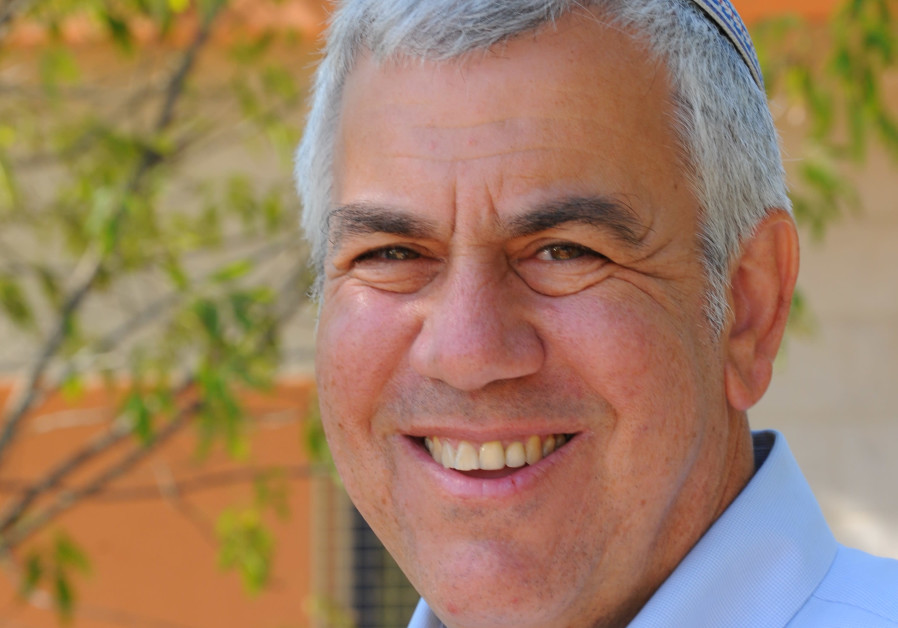The United States of America is in serious trouble, says David Rubin, and can solve its problems by learning from the experiences of Israel and the Jewish people.
The Brooklyn-born Rubin, who made aliyah some 29 years ago, has not given up on America and says that the country’s destiny can be corrected. On the contrary, he writes, “I remain a proud dual citizen.”
“My hope,” writes Rubin in the book’s introduction, “is that by studying the recent events in the United States and comparing them to the Israeli/Jewish experience, my beloved country of birth will discover some of the necessary solutions to meet the challenges, and will succeed in preventing the radical revolution that wants to transform America from a beacon of light for a declining Judeo-Christian civilization to a confused, intolerant caricature of a Socialist Utopia that has never existed.”
At the outset, Rubin summarizes the unique relationship between the Land of Israel, the Bible and the United States. Much of the early history of the United States, writes Rubin, was influenced by biblical and Hebraic roots. A basic knowledge of Hebrew was considered necessary for early American scholars, and Hebrew was compulsory at Harvard until 1787.

He describes the meeting of chief Rabbi Yitzhak HaLevi Herzog with former president Harry Truman in 1949 and Herzog’s comparison of Truman, whose government was the first to offer official recognition of Israel in 1948, to that of Cyrus, King of Persia, who permitted the Jewish people to return to Israel from Babylon. He then surveys the relationships between other US presidents and Israel, including presidents Jimmy Carter, Barack Obama and Donald Trump.
Citing the Munich Agreement of 1939, in which British prime minister Neville Chamberlain agreed to cede the Sudetenland to Nazi Germany, as well as the Oslo Accords between Israel and the PLO, Rubin suggests that appeasement of revolutionary groups will not work, and will, in fact, encourage them to increase their demands.
The study of history, in Rubin’s view, is essential. “Monuments to the past are important,” writes Rubin, “even if the past reflects things that were not to our liking.” Rubin laments the possible removal of the names of American heroes such as Washington and Jefferson from schools in the United States due to their ownership of slaves and points out that slavery was common at that point in history. Additionally, he points out, one needs to weigh their shortcomings against their many significant accomplishments.
“The absence of context is a fatal error for anyone who truly wants to understand history,” he writes.
While the Jewish people has venerated its heroes, such as King David, Herzl, and Ben-Gurion, it has never papered over their flaws and shortcomings.
Rubin explains that the use of semantics to distort the truth is a hallmark both for radical Muslim ideologues as well as American leftists.
For example, the pejorative use of the words “settlers” and “occupied territories,” which have gained widespread acceptance in the press, has influenced people’s opinions on Israeli issues. By the same token, in the United States, Rubin writes, terms such as “progressive” and “social justice” have been distorted and misused. Destructive “days of rage,” in his opinion, are counterproductive. He cites examples of both Jews and non-Jews, blacks and whites, who have succeeded through hard work, despite the obstacles placed in their path.
While many on the American Left espouse the beliefs of socialism, Rubin suggests that they would be well served by considering Israel’s experience with socialism. It was only after Israel abandoned “its socialist rulebook” and adopted US-style capitalism that its economic successes soon began, he argues.
Rubin summarizes 10 lessons that the Jewish people and the State of Israel have learned throughout history that can be utilized by the United States in countering the radical left-wing agenda:
1. Understand that nothing is irreversible. The reversal of harmful change in society can be accomplished, though it can take time.
2. Believe what they say to each other. If one truly wants to understand the radical message, listen carefully to what they say to each other – not to the media. The State of Israel, explains Rubin, ignored the messages of “holy war” that Yasser Arafat and Mahmoud Abbas told their fellow Arabs while listening only to their more peaceful comments that were said to Westerners.
3. Do not tolerate violent rioting and looting. Violence must be stopped in its tracks, but it’s also critical to confront violent insurrection with a long-term strategy.
4. Cut off funding. Congress should block sources of funding that undermine the United States and its national institutions.
5. Take back the universities. The radical Left has taken over the discourse in higher education by promoting revisionist history and admiration for socialism and Marxism. Colleges were once bastions of intellectual freedom, where great ideas were discussed and debated. Fundamental changes need to be made toward tolerance and inclusion of more conservative ideas.
6. Educate the children. The American educational system needs to be restored to a design that reflects the values of Judeo-Christian civilization.
7. Restore the traditional American family.
8. All Lives Matter. Terms such as “affirmative action” and “white privilege” are racist, and racism should not be combated with racism. Black lives do matter, and those who need help, regardless of their race, should be provided with support and guidance.
9. Use the media wisely. Rubin writes that “the new world of Big-Tech is frightening and Orwellian.” Conservative forces should not allow free speech to be stifled and controlled, and must be assertive and strong, though not through violent means.

Q & A with author David Rubin
It has changed remarkably. I believe it all started at the end of the 1960s when many of the radicals of the ’60s were becoming part of the establishment. The changes that were made in American society in those decades that followed were a grassroots movement of the far Left.
The norms of American society, from the traditional family structure to the concept of hard work, as opposed to handouts, and the idea of appeasing your enemies and those who tried to bring down your civilization – all of those concepts changed in America, and what we’re dealing with now is a radical secular Left that is trying to bring down American society – what we call Judeo-Christian civilization.
When we see demonstrators vandalizing and in some cases actually try to tear down monuments to American heroes, it’s very troubling.
In Israel, we also have heroes. We have ancient heroes like King David and King Solomon. When we read about them in the Torah, we also read about their mistakes, and we learn from their mistakes. We’re very open, but we also honor their great achievements.
A country that tears down its heroes is tearing down the foundations of the country.
It’s important to learn from Israel’s successes but also our mistakes. One thing to understand is that socialism does not work. In Israel, we tried socialism from 1948 to the early 1980s, and economically it was a disaster. By the 1980s, we had 445% inflation.
In addition, when you give people socialism, even if it’s democratic socialism, when you grant the government too much power, they’re going to abuse it. During the time of socialism in Israel, we had one television station owned by the government. We had one health fund owned by the government, and we had one labor union – the Histadrut – which was controlled by the government.
Socialism takes away your freedom, and it destroys your economy. When I see Americans running after socialism, as if it’s a great thing, they have to understand that it doesn’t work.
There are other examples – the concept of hard work, the concept of the traditional family, which is on the rise in Israel. We consider it a blessing to have large families – it’s a good thing. If you tear down the traditional family, then you tear down your society. We’ve seen in communities in America, how the traditional family is a mess. There are many one-parent families. In some cases, it can work, but it’s not the ideal. When we make the ideal something other than the traditional family, we are also tearing down society.
All of these are important things America can learn from Israel.